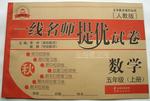题目内容
I asked the tailor to make a small _____ to my trousers because they were too long.
A. change B. variation C. revision D. alteration
D
alteration 修正,更改,尤指部分的改变;Change改变,变化,可指表面的、本质的、内在的变化;revision修订、修正,常指文章、词典、剧本等的修改、订正;variation(形式、位置、条件的)变化、改变、变动。

练习册系列答案
 一线名师提优试卷系列答案
一线名师提优试卷系列答案
相关题目